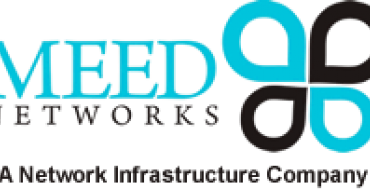
Internet has become an integral part of our daily activities; right from paying your wards school fees to making withdrawals on A.T.M machines. It is so adapted to us that almost all activities could be done online, yes! Online at least if those activities couldn’t be done online they can be made easier by learning the ‘how to’ do it. Is it not? However, Cybercriminals have become quite savvy in their attempts to lure people in and get you to click on a link or open an attachment. So the issue of safety has popped up. I have iterated some basic things you need to know and do to have a successful internet cum social life
1. Watch your back
This language especially when around atm machines though peculiar but whenever you're about to post something online, pause and just imagine someone in authority, someone you respect, reading that post or looking at that photo. If that feels uncomfortable, don't do it.
2. How about a nickname?
This is a really nice idea especially if you're signing up to a microblogging site like Twitter. You can also consider setting up a separate, personal email account to use with social media sites, rather than using your work, or even your main personal email. Remember, only connect to people you know.
3. Use the privacy and security settings
Use the privacy and security settings on social media sites so that only friends and family can see your pages. Then speak to friends and family and encourage them to tighten their privacy settings too as they could affect you.
4. Install a firewall
A firewall is a software program or piece of hardware that blocks hackers from entering and using your computer. Hackers search the Internet the way some telemarketers automatically dial random phone numbers. They send out pings (calls) to thousands of computers and wait for responses. Firewalls prevent your computer from responding to these random calls. A firewall blocks communications to and from sources you don't permit. This is especially important if you have a high-speed Internet connection, like DSL or cable.
5. Guard personal information
Don't post any personal information- your address, email address or mobile number - publicly online. Just one piece of personal information could be used by a complete stranger to find out even more. If you want to include your birthday in your profile it's safer not to actually display it publicly - providing your full date of birth makes you more vulnerable to identity fraud.
6. Photos and videos
Be careful about which photos and videos you share on social media sites; those selfies, collabos, me in the school... Avoid photos of your home, work, school or places you're associated with. Remember, once you've put a picture of yourself online, other people may be able to see it and download it - it may not just be yours anymore. Well I have friend that has my 10yr birthday pics. Can I reclaim it?
7. Check what's needed
Don't give out information online simply because it's asked for - think whether whoever is asking for it, really needs it. When you're filling in forms online, for example to register with a website or sign up for a newsletter, always provide the minimum information possible.
8. Direct message if you can
It's almost always possible to send a direct message or private message on social media platforms. If you're having a personal chat, this is the best option to go for - unless you don't mind sharing your conversation with millions of other users. Alternatively, send an email from a private account.
9. Delete old accounts
If you've stopped using a social media site or forum, then close your account down. There's no point in leaving personal information out there unnecessarily.
10. Get anti-virus software
Make sure you have anti-virus software installed on your computer and be careful what you download or install on your computer. Some operating systems have built-in firewalls that may be shipped in the "off" mode. Be sure to turn your firewall on. To be effective, your firewall must be set up properly and updated regularly. Check your online "Help" feature for specific instructions.
- Log in to post comments





